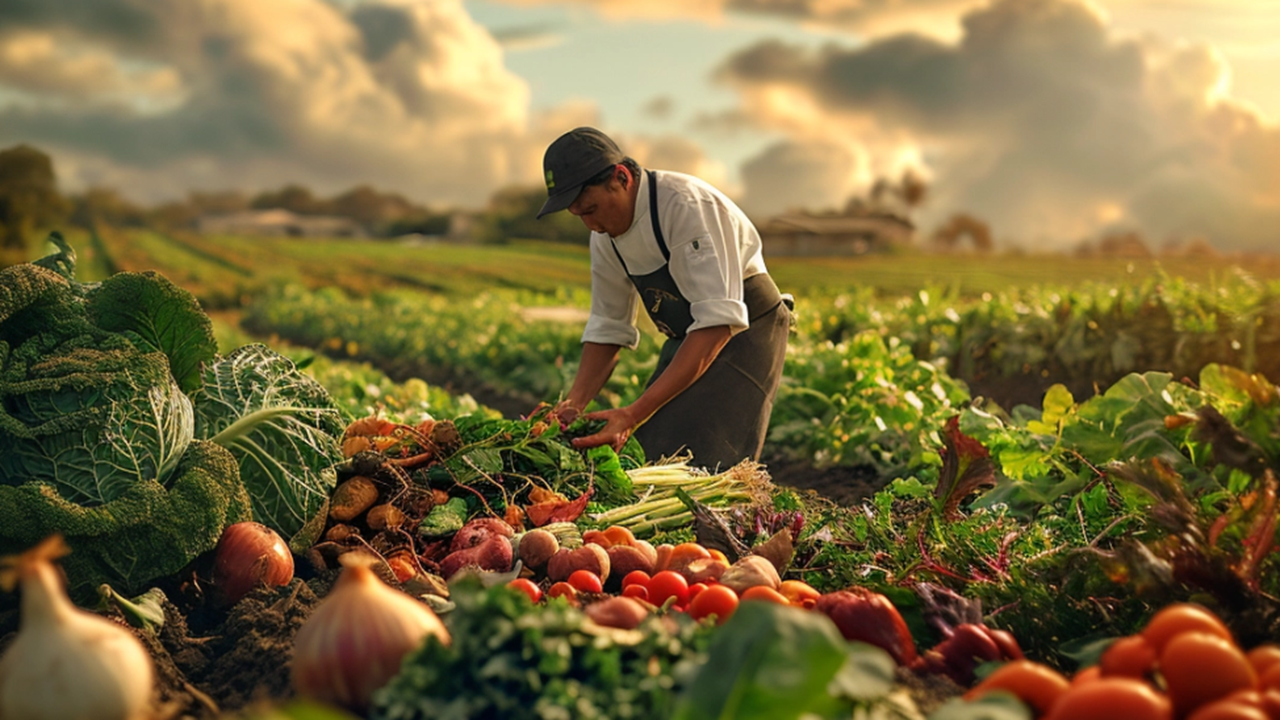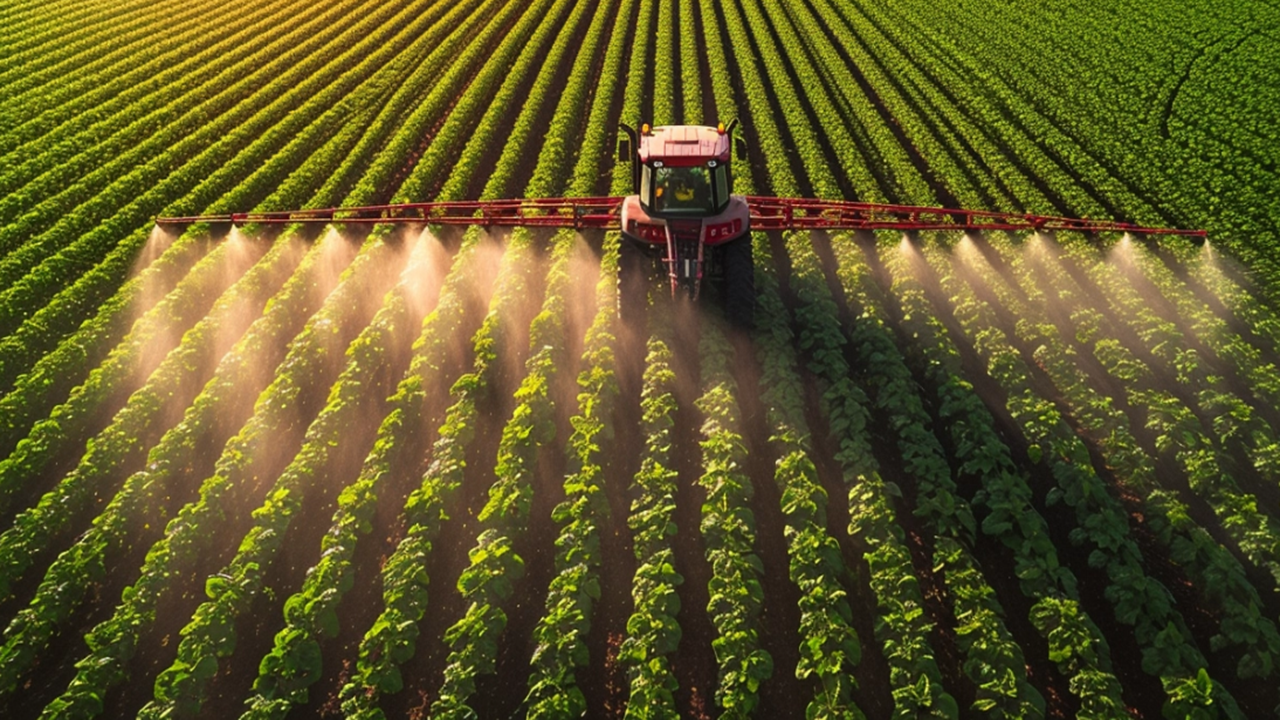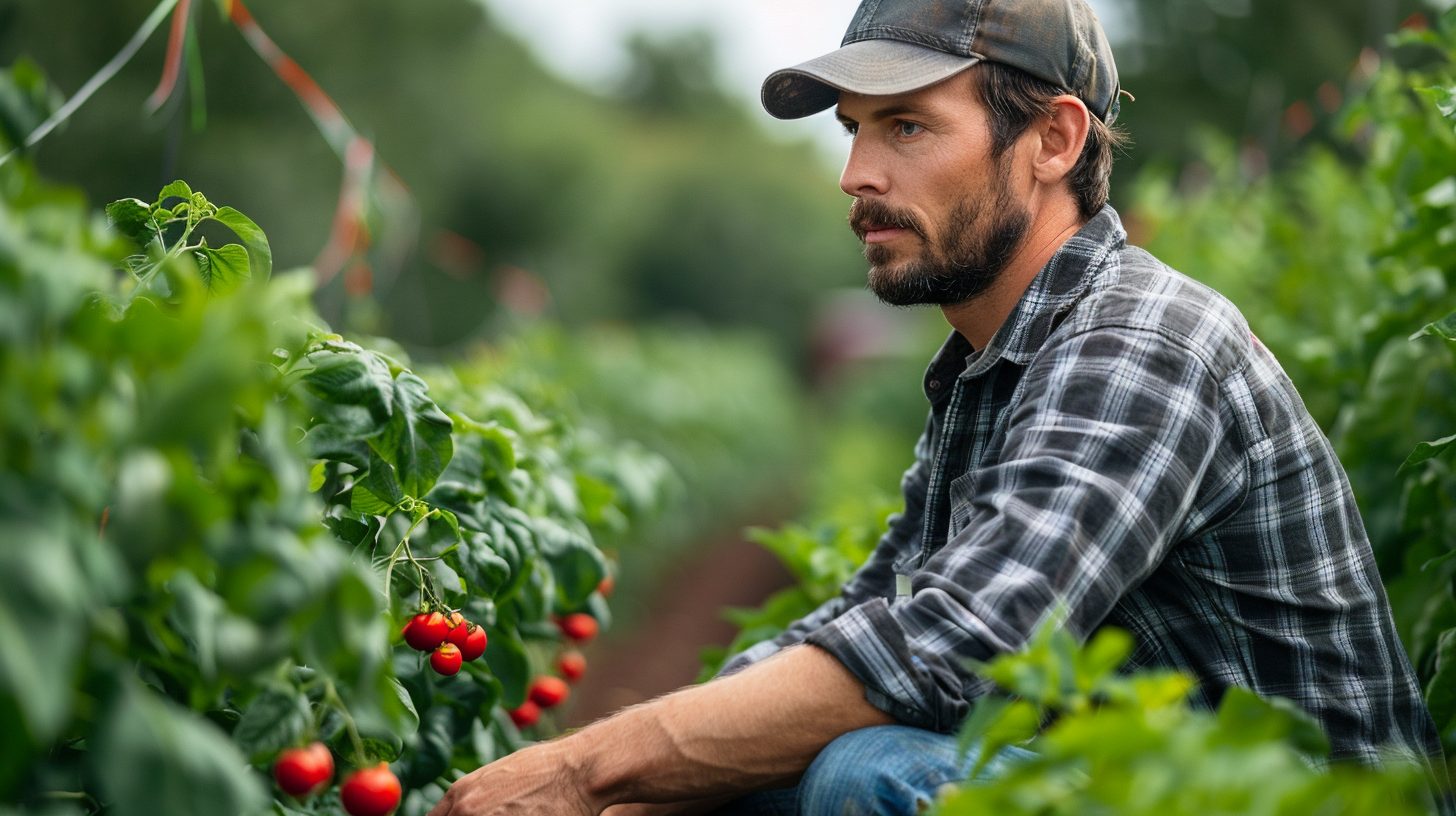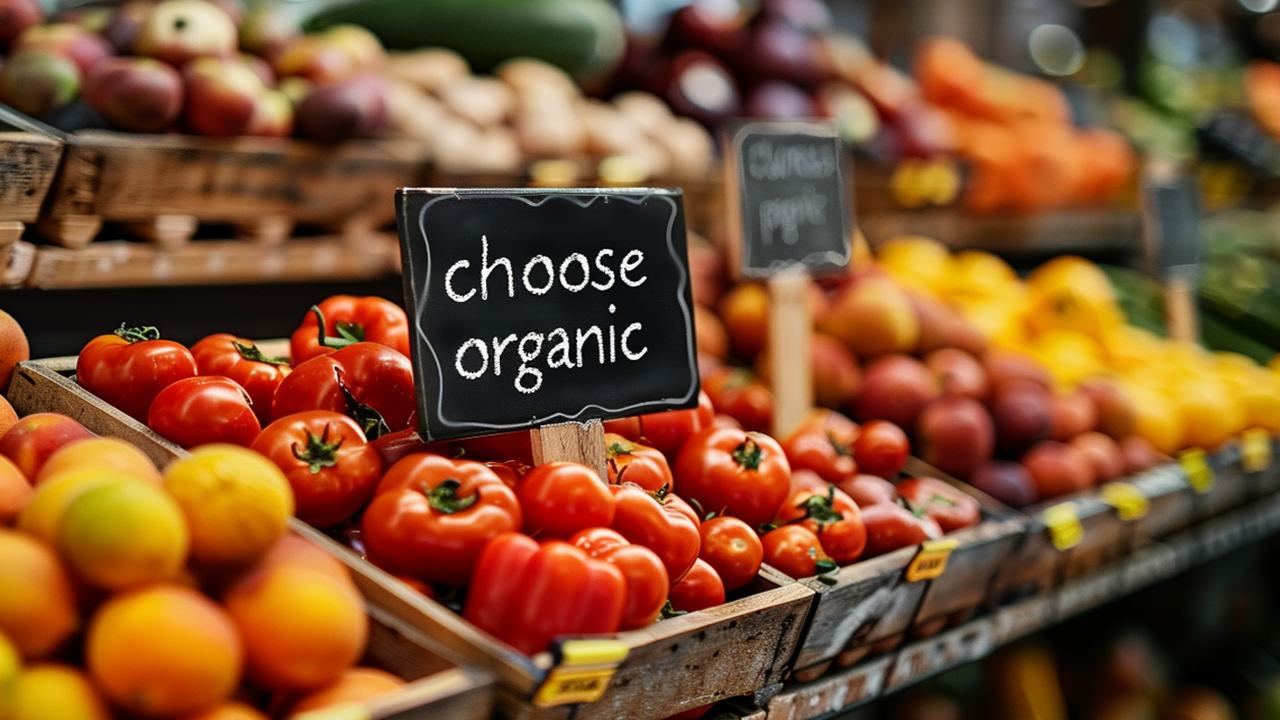
Do you want to make a positive impact on the environment?
By choosing sustainable eating practices, you can help protect our planet in significant ways.
Imagine a world where your food choices contribute to reducing greenhouse gas emissions, preserving natural resources, supporting ecosystems, minimizing pollution, combating deforestation, promoting soil health, and conserving water.
It's not just about what's on your plate, but also about the ripple effect it can have on the environment.
Sustainable eating practices are a simple yet powerful way to play a part in creating a healthier and more sustainable world for future generations.
Key Takeaways
- Choosing plant-based foods over animal products can reduce greenhouse gas emissions.
- Opting for locally sourced and seasonal foods helps preserve natural resources.
- Sustainable agriculture supports biodiversity conservation and aids in the preservation of wildlife habitats.
- Minimizing food waste and opting for sustainably produced foods can help minimize pollution.
Reduce Greenhouse Gas Emissions
You can reduce greenhouse gas emissions by choosing plant-based foods over animal products. The production of animal products, such as meat and dairy, contributes significantly to greenhouse gas emissions. Livestock farming alone accounts for nearly 15% of global greenhouse gas emissions.
By reducing your consumption of animal products and opting for plant-based alternatives, you can effectively lower your carbon footprint.
Additionally, addressing food waste is crucial in the effort to mitigate greenhouse gas emissions. Approximately one-third of all food produced for human consumption is lost or wasted, leading to unnecessary greenhouse gas emissions from the decomposition of organic waste in landfills.
Preserve Natural Resources

To preserve natural resources, consider choosing locally sourced and seasonal foods whenever possible. Sustainable agriculture methods, such as crop rotation and organic farming, help conserve soil quality and maintain biodiversity. When you opt for locally sourced produce, you reduce the environmental impact of transportation and support local farmers.
Seasonal foods also require fewer resources for cultivation and preservation. In addition to this, minimizing food waste is crucial for preserving natural resources. Every year, about one-third of all food produced for human consumption is lost or wasted. By managing your food purchases and consumption more efficiently, you can contribute to reducing food waste and its associated environmental impacts.
Embracing sustainable agricultural practices and reducing food waste are powerful ways to protect natural resources and promote a healthier, more sustainable environment.
Support Ecosystems
Embracing sustainable eating practices can contribute to the support of ecosystems. Biodiversity conservation is crucial for maintaining healthy ecosystems, and sustainable agriculture plays a vital role in this endeavor. By choosing locally sourced, organic foods, you directly support farming practices that prioritize biodiversity conservation. These methods help preserve the variety of plant and animal species, promoting ecological balance.
Furthermore, sustainable agriculture also aids in the preservation of wildlife habitats. Choosing foods produced with minimal impact on the environment helps safeguard the natural spaces that many species rely on for survival.
Minimize Pollution
Choose sustainably produced foods to minimize pollution and reduce environmental impact.
Food production, particularly industrial agriculture, is a significant contributor to environmental pollution. The use of chemical fertilizers and pesticides can lead to water and soil pollution, while livestock farming produces methane, a potent greenhouse gas. By supporting sustainable farming practices, you can reduce the environmental impact of food production.

Additionally, minimizing food waste is crucial in minimizing pollution. Organic waste in landfills produces methane, contributing to climate change. By being mindful of your food consumption and reducing waste, you can play a part in minimizing pollution.
Opt for locally sourced, organic produce, and support businesses that prioritize sustainable and eco-friendly practices. Every small choice you make can contribute to significant waste reduction and a healthier environment.
Combat Deforestation
By supporting sustainable farming practices, you can actively contribute to combatting deforestation and preserving vital ecosystems.
Reforestation efforts play a crucial role in replenishing lost forest cover. Trees are essential for carbon sequestration, and their preservation is vital for mitigating climate change.
Implementing sustainable agriculture techniques, such as agroforestry and permaculture, can help reduce the need for further deforestation by maximizing agricultural productivity on existing land. These methods also promote biodiversity and soil health, further supporting the conservation of natural habitats.
Additionally, supporting initiatives that prioritize sustainable logging practices and the use of alternative materials to wood can help alleviate pressure on forests.
How can you actively contribute to promoting soil health through sustainable eating practices?
By choosing organic and locally sourced foods, you can help improve soil fertility and enhance biodiversity.
Organic farming practices, such as crop rotation and the use of natural fertilizers, promote soil health by maintaining nutrient levels and supporting diverse microbial communities.

Additionally, supporting local farmers reduces the environmental impact of food transportation and encourages sustainable land management practices that prioritize soil conservation.
By consuming a plant-based diet and reducing food waste, you can also minimize the need for large-scale agricultural practices that degrade soil health.
Making conscious choices about the food you consume directly influences the health and sustainability of the soil, ensuring fertile land for future generations.
Conserve Water
To conserve water through sustainable eating practices, consider supporting agricultural methods that prioritize efficient water use and reducing your water footprint through dietary choices.
Efficient irrigation and water conservation techniques are crucial for sustainable agriculture. For example, drip irrigation systems deliver water directly to the roots of plants, minimizing water waste through evaporation or runoff.
By favoring fruits, vegetables, and grains over water-intensive livestock products, you can significantly reduce your water footprint. Did you know that producing one pound of beef requires about 1,800 gallons of water, while one pound of wheat only needs 132 gallons?

Making informed food choices directly impacts water conservation. By advocating for and adopting sustainable agricultural methods and making mindful dietary decisions, you can contribute to conserving water resources and protecting the environment.
Frequently Asked Questions
Can Sustainable Eating Practices Make a Significant Impact on the Environment, or Are There Other Factors That Have a Greater Effect?
Sustainable eating practices can have a significant impact on the environment. Other factors may play a role, but the food industry's environmental impact is substantial.
By choosing locally sourced, organic foods and reducing meat consumption, you can directly decrease greenhouse gas emissions and water usage.
While alternative solutions exist, sustainable eating practices offer a tangible way for individuals to make a positive impact on the environment.
How Do Sustainable Eating Practices Contribute to the Overall Health and Well-Being of Communities and Individuals?
Engaging in sustainable eating practices promotes community engagement and enhances public health. By prioritizing locally sourced, organic produce and reducing meat consumption, communities can benefit from improved nutrition and reduced risk of chronic diseases.
These practices also support local farmers and reduce the environmental impact of food production. Overall, sustainable eating contributes to the well-being of individuals and communities, fostering healthier, more resilient societies.
What Are Some Practical Ways That Individuals and Families Can Incorporate Sustainable Eating Practices Into Their Daily Lives?
To make everyday changes, start by incorporating practical tips like buying local produce, reducing meat consumption, and minimizing food waste.
By doing so, you can make a significant impact on the environment. These actions not only benefit your health but also contribute to the sustainability of our planet.
Making these small adjustments in your eating habits can lead to a more environmentally friendly lifestyle.
Are There Any Potential Drawbacks or Challenges Associated With Transitioning to a More Sustainable Diet and Lifestyle?

Transitioning to a more sustainable diet and lifestyle presents challenges like adjusting to new eating habits, finding affordable organic produce, and overcoming the convenience of fast food.
Solutions involve meal planning, supporting local farmers, and gradually introducing sustainable options.
By embracing these changes, you can positively impact the environment and your health.
It's a worthwhile endeavor that requires commitment, but the long-term benefits make it a rewarding lifestyle choice.
To effectively promote sustainable eating practices on a larger scale, policymakers and governments must prioritize policy implementation and community engagement. By providing incentives for sustainable food production, investing in education outreach, and creating regulations that support environmental conservation, governments can drive meaningful change.
This requires a data-driven approach that emphasizes the environmental impact of food production and consumption. Through these efforts, sustainable eating practices can become the norm, leading to a healthier planet for future generations.
Statistics
- Implementing sustainable eating practices can contribute to the conservation of natural resources, such as arable land and fresh water.
- Adopting a plant-based diet can help conserve water resources.
- Eating locally sourced foods supports and strengthens local economies.
- Sustainable agriculture helps ensure food security and resilience in the face of climate change.
- Sustainable eating practices can inspire and motivate others to make positive changes for the environment.
- Transitioning to sustainable eating practices can help mitigate the negative impacts of intensive livestock farming on the environment.
- Embracing sustainable eating practices can reduce deforestation caused by the expansion of agricultural land.
- By supporting sustainable farming practices, we can promote fair and ethical treatment of farm workers.
- By reducing food waste, we can save precious energy and minimize the impact on the environment.
External Links
How To
How to Choose Locally Sourced Foods for Sustainable Eating
Choosing locally sourced foods is a great way to practice sustainable eating and help protect the environment. Start by visiting your local farmer's market or joining a community-supported agriculture (CSA) program. Look for labels or ask the growers directly about the origin of the produce. Opt for fruits, vegetables, and other food items that are grown within a certain radius of your location. By choosing locally sourced foods, you can reduce the carbon emissions associated with long-distance transportation and support local farmers and businesses.
How to Reduce Food Waste for a More Sustainable Diet
Reducing food waste is an important step towards sustainable eating. Plan your meals and create a shopping list to avoid buying more food than you need. Store food properly to prolong its freshness and avoid spoilage. If you have excess food, consider donating it to local food banks or composting it instead of throwing it away. Get creative with leftovers and find ways to incorporate them into future meals. By reducing food waste, you can save valuable resources, such as water and energy, while minimizing the environmental impact of food production and disposal.
How to Incorporate More Plant-Based Meals into Your Diet
Transitioning to a more plant-based diet is a sustainable eating practice that can help protect the environment. Start by gradually replacing meat and animal products with plant-based alternatives. Experiment with flavorful and nutritious plant-based recipes to make the transition enjoyable. Increase your intake of fruits, vegetables, legumes, and whole grains, which are rich in essential nutrients and have a lower environmental footprint compared to animal-based foods. Explore different cuisines that prioritize plant-based ingredients. By incorporating more plant-based meals into your diet, you can reduce the demand for animal agriculture, which is a major contributor to greenhouse gas emissions and deforestation.
How to Choose Organic Foods for Sustainable Eating
Choosing organic foods is a sustainable eating practice that promotes environmental protection. Look for foods labeled as "certified organic" and familiarize yourself with organic farming practices. Organic foods are grown without synthetic pesticides and fertilizers, which helps reduce water pollution and preserves soil health. They also promote biodiversity and support sustainable farming methods. When shopping for organic foods, prioritize locally sourced options to further reduce the carbon footprint associated with transportation. By choosing organic foods, you support farmers who prioritize sustainable farming practices and contribute to the preservation of the environment.
How to Support Sustainable Fishing Practices for Marine Conservation
Supporting sustainable fishing practices is crucial for protecting marine ecosystems. When purchasing seafood, look for labels such as "MSC Certified" or "Friend of the Sea" to ensure that the fish has been caught using sustainable methods. Educate yourself about sustainable seafood choices and opt for species that are abundant and not overfished. Avoid consuming endangered or threatened species. Consider choosing plant-based alternatives to seafood, such as seaweed or plant-based "fish" products. By supporting sustainable fishing practices, you promote the long-term health of our oceans and help protect fish populations and their habitats.
How to Reduce the Consumption of Processed and Packaged Foods
Reducing the consumption of processed and packaged foods is a sustainable eating practice that can minimize waste and environmental impact. Opt for fresh, whole foods instead of heavily processed options. Cook meals from scratch using real ingredients whenever possible. If you do buy packaged foods, choose products with minimal packaging and look for brands committed to sustainability. Consider bulk shopping to reduce the amount of packaging waste. By reducing your reliance on processed and packaged foods, you can minimize the use of plastic and other non-recyclable materials, contributing to a healthier environment.
How to Educate Others About the Benefits of Sustainable Eating
Educating others about the benefits of sustainable eating is an important way to inspire positive change. Share your knowledge and experiences with friends, family, and colleagues. Discuss the environmental impact of our food choices and the benefits of sustainable eating practices. Share articles, documentaries, or websites that provide valuable information about Well-Beingsustainable eating. Organize cooking demos or potlucks to showcase delicious plant-based meals. Engage in conversations and be open to answering questions with optimism and enthusiasm. By educating others, you can help create a ripple effect of sustainable eating practices and contribute to a healthier and more environmentally friendly future.

 HealthWellnessFitnessBeautyVideosPrivacy PolicyTerms And Conditions
HealthWellnessFitnessBeautyVideosPrivacy PolicyTerms And Conditions
